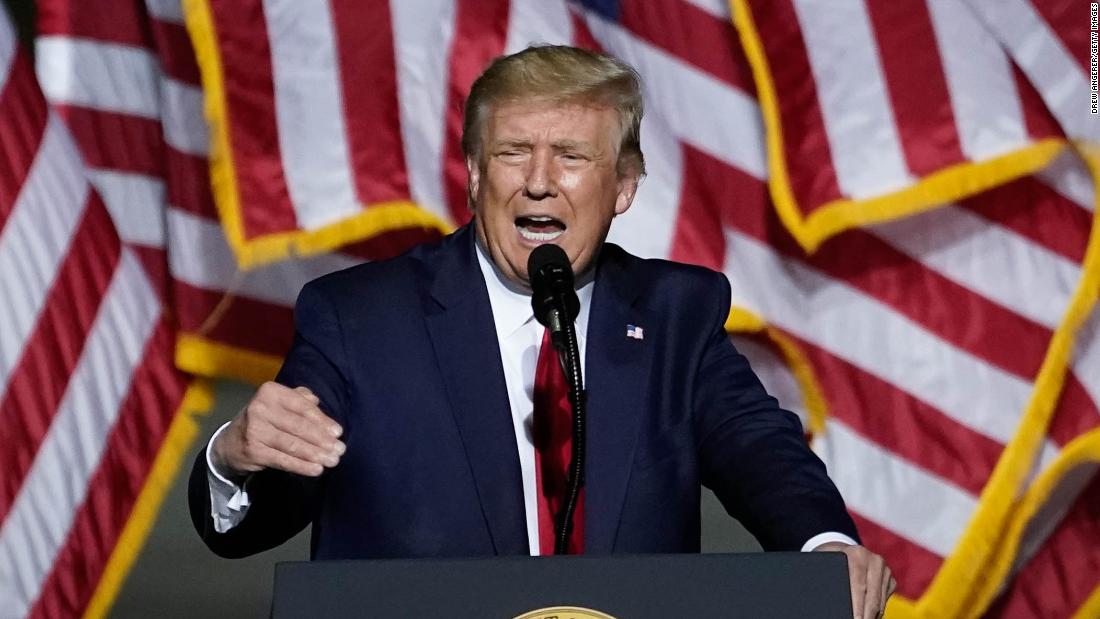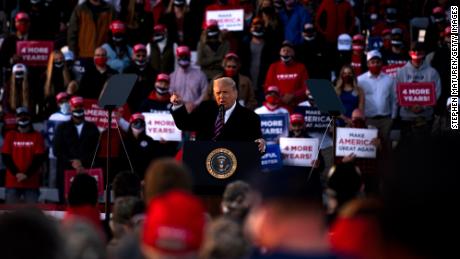The New York Times’ report on the President’s tax returns shows a pitifully inept businessman and a serial tax avoider crushed by massive debts
In 2016 and 2017 each, Trump paid just $750 in federal income taxes — far less than many Americans who are working hard amid a deep recession to stay afloat. Trump took huge deductions — including $70,000 to take care of his hair — and also appeared to write off hundreds of thousands of dollars paying his daughter Ivanka as a consultant to the Trump Organization, according to the Times report. The story also reveals the extent to which Trump’s status as President is being used to shore up his losing ventures — for example his hotel in Washington, DC, and his golf resorts.
“This is a con man in the White House,” presidential historian Douglas Brinkley told CNN Sunday, referring to a President who shattered convention by refusing to release his tax records to the public while running for office.
Tony Schwartz, who penned Trump’s book “The Art of the Deal,” said even he was surprised by the “sheer brazenness” of Trump’s behavior, remarking to CNN’s Anderson Cooper that it revealed the “kind of mind that would think ‘I can get away with paying no taxes on hundreds of millions of dollars in income.'”
It leaves the President facing multiple questions about his morals, behavior — and patriotism since he appears to be paying more in taxes to several foreign nations than he is to Uncle Sam. The reporting also raises the possibility that Trump’s deceptive accounting, already the focus of several investigations in New York, could open him up to serious legal issues when he leaves office.
The Times report, for instance, says that the President has been battling the Internal Revenue Service for years over whether losses he claimed should have resulted in a staggering tax refund of $73 million.
A debate opening for Biden
In the short-term, the New York Times report gives Biden a golden opportunity to put Trump on the defensive during their first debate in Cleveland, Ohio, on Tuesday evening.
Biden campaign communications director Kate Bedingfield told CNN on Sunday that the report clarified the contrast between the President and the Democratic nominee.
“You have in Donald Trump a President who spends his time thinking about how he can work his way out of paying taxes of meeting the obligation that every other working person in this country meets every year … with Joe Biden you have somebody who has a completely different perspective on what it means to be a working family in this country,” Bedingfield said.
The key figure — that Trump paid just $750 in taxes in two straight years — might be the most damning, since it is so identifiable and strikes such a clear comparison to the larger figure almost all Americans pay. If a man with his own airliner, gold-leafed homes and string of golf resorts can get away with that, who is to argue that system is not irretrievably biased against regular people?
“I’m telling you there are people out there, and I know, I come from blue collar, hard-working, these folks are scraping to make a living and they’re going to wake up and find this incredible mogul paid $750,” said former Ohio Republican Gov. John Kasich, who is now a CNN political commentator.
“I don’t care what his excuses are. It doesn’t pass the smell test. It’s not going to disrupt those people who were for him totally. It’s those people on the fence,” Kasich said.
Within hours of the report’s publication, the Biden campaign had already put vinyl stickers up for sale on its website — reading, “I paid more income taxes than Donald Trump.”
The report also sheds some light on the President’s clear desperation to cling to power. He, for example, intensified his false claims on Sunday that Democrats were trying to steal the election, making a new and factually empty assault on mail-in ballots that he claims are plagued by massive fraud.
The Times reports that within the next four years, more than $300 million in loans — for which Trump is personally responsible — will come due. That opens the extraordinary possibility that the lenders could be called upon to decide whether to foreclose on businesses owned by the US President while he is in office if he is unable to pay the money back. Trump is therefore in danger of becoming deeply compromised.
His personal debts also underscore a long-time fear about his administration — that he is managing US diplomacy in order to prioritize his own personal and financial goals rather than the wider national interests. Trump, for instance, derives millions of dollars in income from countries like Turkey and the Philippines that are led by autocrats whom he has praised but who infringe traditional US values like human rights. And while he has paid little federal tax to the Treasury, the President or his companies have paid more in taxes to foreign powers, including $145,400 to India and $156,824 to the Philippines in 2017.
Trump’s supporters likely to be unmoved
With the election so close, the President needs to spend every day trying to destroy the Democratic nominee’s credibility — even as he tries to escape the consequences of his disastrous management of a pandemic that has killed more than 200,000 Americans and is again gathering strength. But the story of his taxes may defy even a distraction artist as proficient as the President.
Yet given Trump’s strong emotional and tribal connection to his followers, his success in constructing alternative political realities while discrediting journalists, and the propaganda from conservative media, the October-surprise style bombshell may have less immediate political impact than might be expected.
Stories about Trump’s refusal to pay his creditors, casino bankruptcies and morally questionable business practices have been circulating for years and did not stop him from winning in 2016 or tarnish his self-created mystique as the hard-driving real estate shark that he portrayed on NBC’s “The Apprentice.”
Throughout a tumultuous political career, Trump has rarely paid a price for scandals, outrages and insults — any one of which would have doomed a normal politician. His brand is well known; he is a rule breaker. And in the past, he has explained that avoiding taxes shows he is a smart businessman and is an approach anyone would take if they could. On Sunday, Trump quickly adopted his characteristic tactics to try and pass off the hugely serious revelations as nothing to concern voters.
“It’s fake news. It’s totally fake news. Made-up, fake. We went through the same stories, you could’ve asked me the same questions four years ago,” the President said, again inaccurately saying he couldn’t release his tax returns because he was under audit.
“I mean the stories that I read are so fake. They’re so phony,” he said, claiming to pay a lot in taxes.
The Trump Organization’s lawyer, Alan Garten, told the Times that “most, if not all, of the facts appear to be inaccurate” and requested the documents.
![]()






